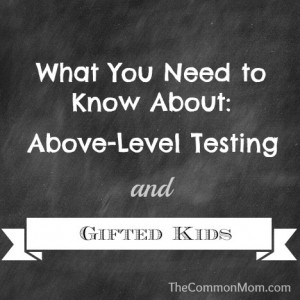You think your child is ready for grade acceleration (grade skipping) but maybe you, and or the school, aren’t sure?
There’s a tool for that.
What is the IAS?
The Iowa Acceleration Scale: A Guide for Whole-Grade Acceleration K-8 from the Belin-Blank Center at the University of Iowa is an objective tool used to make decisions on whole-grade acceleration or double-promotion. In my day they called it grade skipping.
It’s not a test. Thank goodness, right?
It’s an inventory covering several topics to determine if acceleration is most appropriate for the student.
One thing I like about using the IAS, and we used it in deciding to accelerate my daughter from kindergarten directly to second grade, is that it covers a wide range of issues that are of concern to both parents and educators. 
For instance, one of the criteria is motor skill. I know it doesn’t seem like a big deal when considering grade acceleration and I said so, maybe a little too loudly. But if you’re moving a kindergartner, especially one on the younger side, into a classroom with students who have an extra year of practice at holding the pencil, there might be some disparity. And there could be tears. Lots of tears.
Is that a deal-breaker for grade acceleration? No.
Should it be a factor to consider? Yes.
My daughter had a hard time keeping up with writing assignments and came to dislike writing after loving it in kindergarten. I can’t say for certain it’s related to the grade skip and her struggle with the physical aspect of writing but it was something we had to work on.
My point is the IAS covers a variety of topics to be considered when deciding if grade acceleration is right for your student. Some are no-brainers like IQ scores and out-of-level achievement tests while others are more subjective. Intellectual and emotional development are taken into consideration. All of these topics are evaluated as a whole.
Another reason I like it is it prevents schools making decisions without a foundation. It helps eliminate any bias on the part of the educator or school by allowing them to make an objective decision. You definitely want the school to have objectivity in this process.
If your school doesn’t use the IAS it is available for parents to purchase and I would highly recommend it. It gives the ability to take what can be a highly subjective issue and present it in an objective manner as you advocate for your student. Priceless.
Anything that can help you avoid being “that” parent and instead lead to meaningful and productive advocacy conversations for your gifted student is well worth the investment.
Grade acceleration can be a good thing, it has been for my daughter, but there are several issues to consider. Each child is different and requires individual solutions.
What were your outcomes using the Iowa Acceleration Scale?









